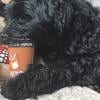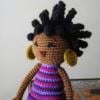Search the Community
Showing results for 'alcohol'.
Found 17,501 results
-


First couple days post op diet
Bufflehead replied to Italiancurves's topic in Post-op Diets and Questions
My surgeon's rule is that you should end up with at least 64 ounces of fluid each day, but it doesn't matter whether that is from water, broth, protein shakes, tea, juice, skim milk, etc. As long as it isn't alcohol, soda, or something with a high carb count (we are restricted to 60 carbs per day). -
I think your analogy to alcoholics is close to the issue. He's probably reacting to the fear of how his life will change because of your lap band. He needs to learn how to adjust, eventually he'll realize that you can still go out to dinner and he can normally even though you will eat differently. He may feel "pressured" into dieting with you, but if he doesn't want to diet, he'll go back to his old eating patterns soon enough. Look at the bright side, if he's loosing weight, your band has worked for both of you. Would he have the initiative to loose weight if not for your decision? Stay positive and give time for him to see that you're only changing your own eating patterns, and I bet he'll calm down soon. i.e. ignore negative comments for a little while and hopefully he'll tire of making them. If that don't work... good luck.
-


When is support not really support?
BethFromVA replied to BethFromVA's topic in LAP-BAND Surgery Forums
That's exactly it. When we met, I was about 150. Could have stood to lose about 20 pounds, but the food wasn't as big in my life as it became over time. When we dated, everything revolved around eating out. And often during our marriage, we'd eat out 3-4 times a week, which is waaay too much. Sometimes it was just because neither of us felt like cooking, other times it was because we wanted to try this or that new restaurant. I willingly went along for the ride and enjoyed it. Then "one day" I woke up more than 100 pounds over where I was when we met. When you are trying to eat chicken and fish and he's talking about going "just this once" to have that steak dinner or other delight at that restaurant we both love, it can be easy to eventually succumb because you really WANT to have that instead of another. night. of. chicken. It's MY fault for eventually saying yes. I take FULL blame. But at the same time, when he knows that you're trying to behave, why tempt? Because HIS wants come before YOUR needs eventually, that's why. That's my frustration. This time I have essentially laid down the law -- where *I* am concerned, not him. HE can go out whenever he wants, but I won't join him. But that wasn't good enough in our last conversation because he was trying to convince me I can still go. It's like taking an alcoholic to a bar and saying you can be safe and order Water. Yeah, but... When one is in a close relationship like this, the other should not do anything to try to sabotage the other. If he had to do some new training for work over the weekend, I would not put my needs to be paid attention to over his need to do his work and go upstairs and bother him and harass him, you know? This isn't just about vanity or what I want. I NEED to do this. I was staring major health issues in the face, and I was afraid I wouldn't live into my 50's if I didn't do something. I didn't just get the band for vanity's sake (well, that will be a nice side effect, but that certainly wasn't the reason). I NEEDED to do something more drastic, something that would help me. Too many people get the band and feel like, whoopee, I can do anything I want now and eat like before. Wrong. Sadly, I guess so do some spouses. Again, WRONG. One day food may not have the hold on me that it does. Until then, I at least need some support from him in the form of understanding that this is MY cross to bear and I don't need him becoming a stumbling block for me. That isn't really too much to ask, and anybody in any kind of relationship should understand this, no matter how block-headed they are. -


PCOS, Sodium, and losing weight slowly
Aggiemae replied to angriggs86's topic in POST-Operation Weight Loss Surgery Q&A
PCOS doesn't slow down weight loss. And 39 pounds in 10 weeks it a lot! You weight goes up and down all the time. If you are following your prescribed food plan you are losing FAT no matter what the scale says. Maybe you can stop weighing yourself every day? Some weeks you might not lose any weight. That is NORMAL. I eat 25 grams of carbs, 90-110 grams of Protein, and as little sugar as possible (just what's in the 8oz of 1% milk I drink a few times a week). I add Fiber ( ground flax seeds) to my Protein shakes, you can also add Benifiber (it's clear and has no flavor) but drink the shake right away of it gets weird. I feel fuller for longer if I add some fiber to the shakes. I don't pay any attention to sodium, but I also don't eat packaged or canned food. Watch out for alcohol sugar (it's often in candy and protein bars) it will stall your weight loss no matter what the labels claim. In my opinion there is such a thing as too much zero calorie (100% chemical) sweeteners.Lots of studies fine that ithey increases hunger. I limit it to one or two packets a day. According to my PT I will get better results working out every second day. I alternate days walking (2miles) and toning/strength training . As for calories, what does your NUT/plan say? If you eat 90 grams of protein and 25grams of low calorie carbs you're eating about 600 calories a day. I eat about 800-900 because, strange as it seems, I wasn't losing much weight and was told by the NUT To increase my calories. Yes, it's normal to get a bit obsessed about your weight. I use a journal to keep track of everything I eat, how much Water I drink, my Vitamins, my blood sugars and exercise. How I explained it to a friend recently is that I have never spent so much time and effort on eating so little food. I want to add that I don't know how old you are, how much you weigh or how active you are. So...keep in mind that the things I do might not be the best for you. Please don't feel like people her are judgmental. -


What am I doing wrong!!?
juliansmom2003 replied to Amanda-7/17/10's topic in POST-Operation Weight Loss Surgery Q&A
It sounds like you are active, but sometimes, it's not enough. I know you mention that you're eating lean cuisines, but the packaged foods are loaded with sodium, so you really need to pay attention to your Water intake. Are you getting at least 64 ounces of water a day? For Protein, how much are you taking in? My doc tells me 70g, but I am actually around 80-90g per day and it does make a difference. I understand the need for 'cheat' days here and there, but they should be every now and again during this time and when you get closer to goal, perhaps you could do more often (this is what I did, which is why I am still 10 lbs from goal LOL). You have the tool to help and until you get a fill, try to find alternatives to one of the lean cuisines. Perhaps do some chicken and veggies for lunch or chicken salad with light mayo and wheat thins. I bring lean cuisines to work because it's just easier, but I make sure I drink a ton of water to balance out the sodium. 2 a day might be a little much, so you really have to get that water in. The good thing about the band is that it's always there to help you, but to be successful, it truly is a way of life. It's not an easy road, but it's definitely a journey--we can't just snap our fingers and BAM! we're all following everything to the "t". So, pace yourself. Don't be hard on yourself and try to Celebrate your successes with things other than alcohol or food (me, it's usually a pair of shoes or new jeans LOL). I do have some wine during the weekend, but try to keep it within reason. You'll get there. It's definitely not about deprivation, but moderation. Good luck to you!!! -
If you are an American, HIPAA law prevents your employer or future employer from being able to access your medical record. No medical practice would go giving out that information unless they want to get sued. It is against the law. Sent from my Nexus 10 using the BariatricPal App Ummm, Horse S**t. Sorry, HIPPA was wiped out in 2009 when the American Recovery and Reinvestment Act of 2009 was passed. One of the provisions was an automation of doctor and hospital records via federal grants to state hospital associations. The public reason was "well it will make it easier for people's medical records to be shared with other medical providers in case of emergency." And that is a dang lie. If you want more information than you ever want on this, I am very sure I can prove that assertion. For the purposes of this discussion, if you have serious drug/alcohol or psychiatric problems and you think the government, law enforcement or big pharma doesn't know it, you are wrong if you have third party coverage. What this means is even though you think your attempts to get help won't or can't be used to keep you from purchasing a firearm in the future, hurt your job prospects, create difficulty getting insurance and professional licening et. al. YOU ARE FLAT OUT WRONG. That patient privacy/HIPPA form that you sign is not worth the paper it is printed on. I self pay and have to work very hard to keep my information out of that system. NOTE: you might ask, why do I care? I really don't give a rip about being one more data point in a government data base, but my ex-wife is a government employee (and bi-polar) and she has access to the whole dang database. She illegally tracks everything I do on the system and let's my kids know everything about my medical history, with the hope of embarrassing me. I don't want her, or anyone else to know. So I work very hard to keep it private. I switched to a non-ObamaCare insurance plan. My doctor is not on the state electronic record system. Most of my pharmaceuticals are purchased from other countries because its cheaper, and no one has a record. So the assertion that it's ok to get help with drug and alcohol problems because "the government will protect your privacy" is VERY, DANGEROUSLY wrong. Sorry. That's a fact and I will gladly defend my position to anyone who wants more info. But this isn't a political site,so I don't want to get too far afield on this, so please if you disagree or want more info please PM. You need help. Sent from my SM-G930T using the BariatricPal App
-
If you feel the need to drink everyday chances are you have an issue with drinking. During my adventure last year with my weight loss support group, we discussed addiction. Drugs and alcohol being common but not limited to food, sex, gambling, heck even shopping can be an addiction. Some think you have to be down and out in order to resemble or be classified as someone with an addiction, and that's far from true. If you find yourself wanting to stop and can't GET HELP A.A is a good start even talking to your doctor might help... Our private and public health care system here in CA offer outpatient support to those who just need a little more motivation. There are those who have to be hospitalized just because they would die without the next drink. One should not wait that long. I hope you find some help as soon as possible... Just remember you are accomplishing and overcoming major obstacle that some won't ever be able too... Don't take your new life for granted:)
-
Sounds like you are using some harm reduction techniques that feel manageable and good for you. Wish you the best of luck and want to say that you may also find it really helpful to seek individual therapy with a person or agency that works with these types of approaches. AA generally only works with an abstinence-based approach and people who aren't ready or don't want to use this approach can often slip back into patterns they aren't comfortable with because of the feelings this may evoke. I say this as a therapist who works with people with substance and alcohol use disorders and have had experiences with AA, NA and CMA.
-
Thank you for your post. I hope you will continue to let us know what's happening and how you're dealing with this new affliction. Like obesity, alcoholism is something many people have overcome. "Recovering" from our specific afflictions is something we have to do every day. It isn't fair. But it's what it is. The good news is that we are allowed to choose how we respond. Sending you my very, very best wishes. Ann
-
I am a drug and alcohol counselor. I strongly advise you to seek professional help. Withdrawal from alcohol can kill you. Medically supervised detox is the safest way you can do this. After detoxing, I suggest treatment of some sort with counseling. Please get help, if money is a concern, there are often programs to pay for or help pay for services. Community support, such as AA is also super important. This is only my opinion based on what I've read and of course, you will make your own choices, just wanted to put in my two cents from the perspective of one who works with addiction every day. YOU ARE NOT ALONE, many out there to help. Sent from my KFASWI using the BariatricPal App
-


Goal and don't know how to maintain
bikrchk replied to lclemur's topic in General Weight Loss Surgery Discussions
When I decided to stop losing, I was still food journaling everything on MFP so I calculated my BMR using the tools form that site and added a few hundred calories until I stopped losing. Did that for about another 6 months and finally (and purposefully) let go of the journaling in favor of a more natural lifestyle. For me, the habits are are there... exercise 5x per week, small, high protein meals, etc. I eat what I'll call "righteously" 85%-90% of the time, stay active and have maintained within 5 pounds for the last year and 1/2. If I creep up, I adjust out some of the junk, (alcohol and treats) until I'm back in the zone. Typically takes less than a week. -
I tried it and the peach something and boy oh boy they taste just like the real thing alcohol and all!
-


3 Weeks Post Op - Are chips and Guacamole allowed?
Armygalbonnie replied to iam_yamii's topic in POST-Operation Weight Loss Surgery Q&A
Actually, the rudeness comment was directed toward my comment and I'm ok with that. I'm just amazed when people are a couple weeks out from surgery, and they are asking when they can have chips, ice cream, alcohol, etc. To each his/her own. -
Hi Michelle! My first thought was that it could be the estrogen pills, but I'm no expert! Sorry about your stall! Sounds like you are doing everything right. I've been doing well. I'm still (and probably for the rest of my life) tracking what I eat. It's crazy how some seemingly harmless foods have SO many carbs or fat grams! I'm paranoid about gaining, so I monitor everything I eat! I know some on this forum have a different philosophy, but this works for me. I've been losing at a pretty steady 3 lbs. per week. I'm still only eating 600-800 calories daily and I think I've only hit 800 once. My goal is 75 grams of Protein, 30 grams or less of fat, and 50 grams or less of carbs per day. I was told no alcohol until 6 months out. Even then, I'm going to only have a sip or two on special occasions, since even small amounts always gives me headaches. I work out 4-5 times per week, but it's been a little spotty these past few weeks as I am adjusting back to work after summer break. I am on my feet and walking ALL day at work, though! Since my pre-op days (beginning last November) I've lost 116 lbs and have gone from a size 26-28 to a very loose 16!! I'm holding on to the 16's until the cooler weather is here and I can buy a few cheap pair of long pants and warmer tops (still in Capris and summer tops for now!). HANG IN THERE!!! Talk to your NUT and don't worry! How are you feeling? I'm sure you have more energy, feel so much better from eating healthy and working out, and are a healthier person overall! Sometimes I forget that that is the most important thing, not the aesthetic!
-


Fast food and alcholic drinks??
morelgirl replied to misscarrie36's topic in PRE-Operation Weight Loss Surgery Q&A
Understood. I try to avoid fast food. It's high calorie, fairly low satiety, and loaded with who knows what that would probably gross me out if I knew it was in my food. If I'm forced into it, I also try to go for Wendy's chili. The important thing is that whatever you choose, control your portion size and count your calories. And still practice small bites and slow chewing. As far as alcohol goes, it's a similar story-- control your portions and count the calories. Wine is, in my opinion, the best bet. It's socially acceptable to nurse a glass of wine forever, you have a variety of flavors and styles to choose from, and it's not mixed with anything carbonated or high in sugar/calories to add to its negative impact. Also, there are proven health benefits to red wine in particular, provided it's consumed in moderation (1 glass per day). Don't be surprised or insulted by people who caution you after reading this type of question. In the end, everyone just wants to help you succeed. Good luck! -


Itching question, and mushy food...
REALIZEinCT replied to jaysmommy1106's topic in POST-Operation Weight Loss Surgery Q&A
The same thing happened to me (banded 4/1/09). My surgeon told me that it was an allergic reaction to the glue that they put under the steri strips. He said I also had an alergic reaction to the glue (alcohol based) on the topical dressings that they put on. Once those dressings came off the itching started to subside and it's gone now. Check with your surgeon but that's my guess. -


Two blog entries in 1 day...dang I am on a role
cerenatee commented on smjuroska's blog entry in smjuroska's Blog
LOL. Believe it or not, that sounds like a normal psych eval. (Yes, I've had more than one). Many people who were addicted to drugs and/or alcohol, transfer their addiction to food. So when you take away the food, they go back to alcohol and drugs or shopping, sex, exercise, even eating disorders. It can get crazy. He was just trying to determine if that was a risk for you and something you need to watch out for. In addition, study after study has shown that a large percentage of WLS patients have been abused, especially sexually, men and women. They don't talk about it, they don't think about it, they eat. Again, you take away the food, you take away the coping mechanism. That's a problem. Studies have shown that people that have been sexually abused lose significantly less weight with WLS than people who haven't been abused. It shouldn't disqualify you but it's something he should point out to you so you can be aware of it and address it if you see it popping up in your life. If you're open, you're honest, and you're willing to address any issues that may pop up, you're going to be fine. -


Two blog entries in 1 day...dang I am on a role
cerenatee commented on smjuroska's blog entry in smjuroska's Blog
I hate saying "studies have shown." If you google "bariatric surgery sexual abuse" or "bariatric surgery drug addiction" or "bariatric surgery alcohol adidiction" you'll get links to research study abstracts that go into detail the latest findings. -
I took my bandages off the day after surgery and never looked back. I eventually had to use alcohol, about a week later, to get the gummy stuff off my belly. I walked a lot after my surgery. I walked around the night after surgery and the next day. Two days after surgery, I walked at least a mile. I think this helped with the pain and gas and all that discomfort stuff. Dr. Sanchez, who banded me, encouraged the walking, not only to relieve shoulder and tummy discomfort, but also to prevent blood clots in the legs. I know you are probably past all your discomforts by now; I thought that perhaps this would help others who were about to have the surgery. 5 weeks since mine and 20 pounds are gone. I feel great!
-
Omg, Tina, that is GREAT! Didn't realize you were dating! You SO deserve it. What would be BETTER is if hottie could take YOU for a date to the same place and you bump into the ex. Yes, I like to grind the knife when I stick it in. And then pour alcohol on the wound.
-
I'm so sorry for all you're going through...my ex-husband was a horrible alcoholic. His "whore" was whiskey, he was abusive and terrible I finally got the courage to leave him, and it was the best thing I've ever done. (I kept wishing he's find a mistress...but, nobody else wanted him either!) I want you to know that I'm praying for your situation. I really hope that either way it goes, it's the best for YOU. I realize children are involved, but please don't stay in an unhappy marriage for only the children's benefit. They will know you're miserable regardless of how much you try to hide the fact. As far as calling the other woman's husband...please think long and hard about it. People are nuts, and quite frankly if she was crazy enough to call your BOSS she might be crazy enough to do something else. I just don't want you to put yourself or your family at risk. Take care.
-


going to cabo- what if I drink too much?
new_me_2008 replied to new_me_2008's topic in LAP-BAND Surgery Forums
Gayle - are you really my mom lurking on the lbt board? ;o Thanks for the advice - I will behave - keeping mind I was a beer drinker too and diet coke drinker and have had neither since surgery. I have definately changed 180 degrees when it comes to what I am putting in my body. I am in no way an alcoholic but wondered now, with the band, if my alcohol tolerance would be lower (I assume that it is) and if that is the case what will be my reaction to more alcohol in my system. I am celebrating my 40th birthday in Cabo and plan to really Celebrate - for the first time in a long time I feel fabulous. Thanks again - I will give an update when I return. -

Looking for Buddy/Mentor...please
Babsbeh replied to Sharon Vance's topic in Gastric Bypass Surgery Forums
Congratulations on your recovery. I was married to an alcoholic so I know how hard it is to quit. Keep up the good work with your weight journey too hugs -
I don't believe that driving drunk is a largely accepted social crime. I don't need or want to drink to be social, and I have no sympathy for anyone who gets a DWI. My own adult son got one once and I hoped they would throw the book at him! Don't get me wrong, I love him with all my heart, but how do you correct a wrong behavior? With discipline. Alcohol consumers have no business getting behind a wheel, and that goes for pot smokers as well. Anytime you are impaired mentally or emotionally (like right after the news of the death of a loved one, or a fight or intense argument with someone, after drug use, etc.)you should walk, not drive.
-
Now that is funny. I also think that it should be required to check the ID of everyone buying alcohol and those who have a DUI on their record should have a color coded license should be refused service.













